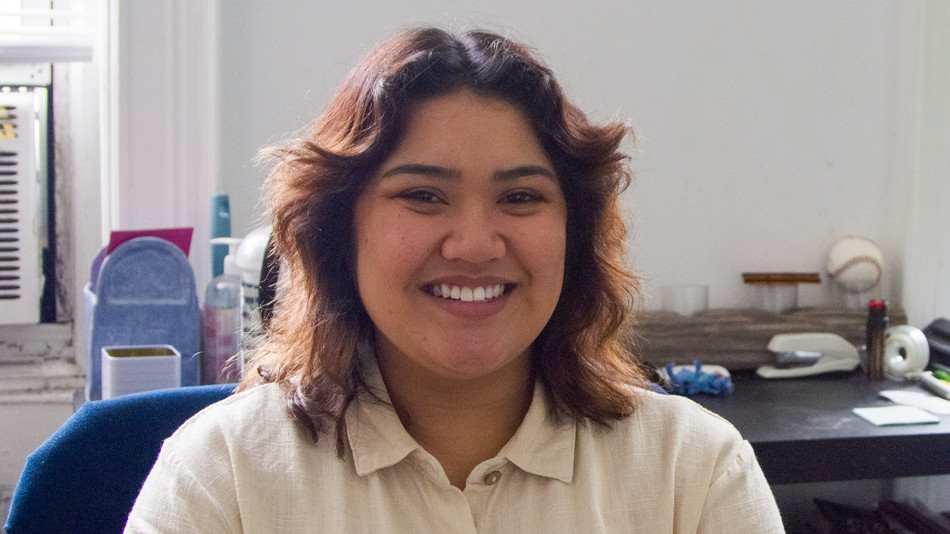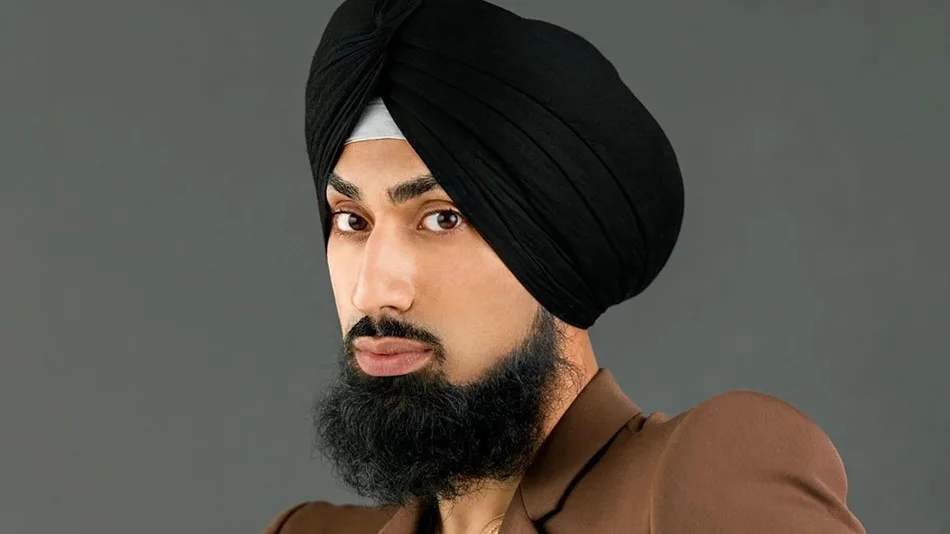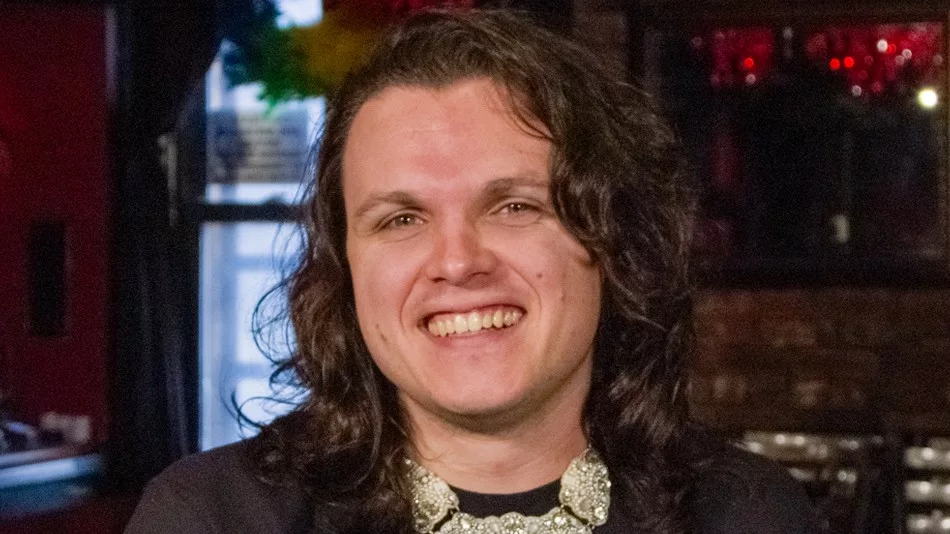I’m Harrison Apple and I’m from Jupiter, Florida. It was probably 3 or 4 months ago, maybe a little bit longer, the memory is kind of hazy, but we were at this vigil for a trans man who had committed suicide. So we’re standing in the parking lot of the gas station, at East Carson Street and the bridge, they meet right there. And we’re waiting for the family of the person who died to show up. But while we were waiting for these people to show up, it’s a somber event but at a certain point you’re just waiting in a gas station parking lot, we all who were there for the vigil, get to talking. And we’re talking about who we are, we’re introducing ourselves to people we don’t know, and I met this older trans woman who showed up on a reclining bicycle, she had all her gear on, she looked very professional, and this really amazing LED helmet. And we got to become fast friends, or perhaps friends too fast. She was talking to me about her own personal history and she was talking to me about her life and we got to talking about myself and she asked me what my name was and I go, “I’m Harrison.” And she goes, “Really? You look more like a Helen.” And I thought to myself, “Sure, I get it, you’re trying to give me some advice, you’re trying to tell me about what it’s like to go through this because you’ve already done it.” And I really appreciated that from her, but I tried to explain it to her that I’m not really interested in changing my name, I identify as sort of gender fluid or gender queer, I’m not looking to turn into a man or a woman, neither of those categories sit with me well. But I didn’t really know how to talk about it so I just sort of said, “Okay, yeah…” And she goes, “Next time I see you I want you to have a girl’s name.” And I thought, “Sure, next time I see you…” I don’t remember her name and I don’t know where she lives so I don’t think that “next time” is coming up anytime soon but it was something that kind of weighed on me for a while. It was a somber event, I didn’t want to make it about myself, or I didn’t intend to. So I hadn’t thought about it for quite a while, but I run a social history project where I talk to elderly trans and queer people in Pittsburgh. I started the Pittsburgh Queer History Project in 2012. It’s an oral history and media archive project, mostly about LGBTQ lives in Pittsburgh from 1960 to 1990. Most specifically it’s about underground social clubs that were kind of secret gay bars during that time period. Part of that asks them to identify themselves in photographs from the 60s and 70s, that now being in their 70s, and a couple of them helped to articulate something I couldn’t even figure out for myself that day. It happened when I was interviewing a friend of mine, Ms. Angie, and she’s this older TS, sex worker, and she’s this big kid in these clubs where a bunch of these photographs were taken and I happened to have. And I showed them to her and she’s talking about transitioning to when she’s about 16 and 18 and 22 and 34 and there are all these different moments and all these different transitions and none of them are going in one direction in particular, and I’ve never really heard someone talk about themselves in that way. About saying, “Oh, I was a gay boy, then I was a booby queen, then I was a woman, but then I went back to being a guy, but then I was a lesbian, and then I was a woman again.” It was just all these identifiers that we get told are kind of who we truly are and who you’re going to be and she was sort of playing around with them in a way that I haven’t seen before. And she sort of was able to articulate something about how gender doesn’t have to be something that’s from one to the other, from male to female or female to male or even between the two. But you can choose and that’s okay. And it was sort of a resolution to hear someone tell me, not only was it possible but that it was a huge part of who they are and how they survive. Sometimes you have to, sometimes you want to, it doesn’t have to be this terribly earnest journey to one particular spot. I think that was a huge relief because I don’t want to be a woman, I don’t want to be a man. I think it’s important that people make up their own mind about gender because we’re in a time and place where gender isn’t what we used to think it was. It’s not something you read off a document. It can be but it doesn’t have to be. And why not now, more than ever, to decide what gender means for you.
“Gender Isn’t What We Used To Think It Was.”
by Harrison Apple








Share